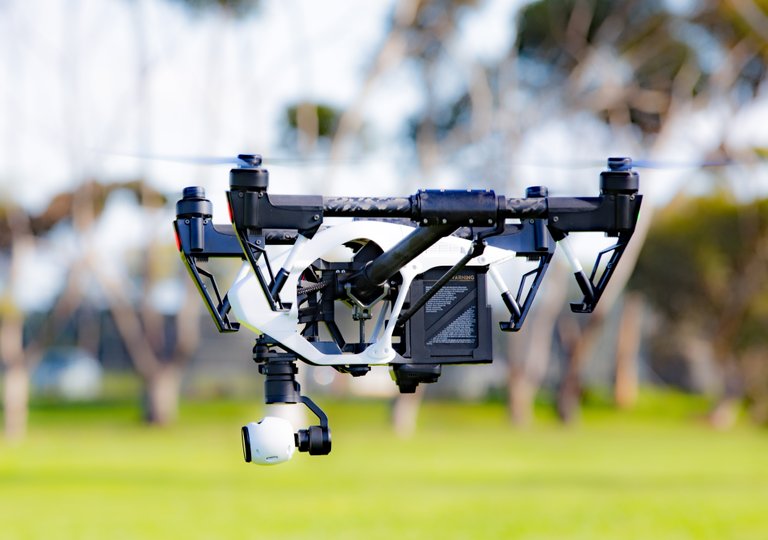
When starting out you will need to choose the right equipment for the task. You should have already decided what market you would like to venture into i described this previously.
Now you need to decide on the drone you would like to use, I began using a Parrot BeBop which to get started and learn how to fly etc was great. What I found let it down was the camera and no matter what you plan on doing the camera is what helps supply the customer with the final information or data. This is what you could class as one of the most important parts. Now if you are a videographer of photographer you will know what you want but if like me you were starting out from nowhere you will have to learn about camera's I used the shaw academy to help me gain a better understanding.
If you are getting into crop survey then you will need to learn about NDVI etc and this doesn't make you an expert in anyway shape or form to tell farmers what they need to do to help grow their crops this takes years of education. What it does do is provide the client/farmer with an excellent overview of his field and aerial view he has probably never seen before.
With the help of apps you can get into 2d and 3D mapping which again what I found was the better the camera the better the results.
So to start out I can recommend the DJI phantom 4 pro. I found this to be great as it gives you a lot of camera settings to work with for pictures of course you can stick it in manual and get good results but I do recommend learning the basics of a camera and learning to shoot in manual mode.
I can also say through my experience of parrot and DJI I prefer DJI. The phantom models for me was light and compact easy to install the quick connect propellers batteries are easy to swap out and it was great when you combine it with a rucksack a very important part of equipment you may require if working at various locations or even remote locations.
The Inspire models are slightly larger but can carry bigger camera's but these come with a large price tag, if you are just starting out i can recommend the phantom series.
Batteries are another very important part of equipment and I would recommend having about 4. The reason I say 4 is when on location I find I perform a test flight first have a look around and get a feel for the area especially if I'm using any app where the flight was pre planned off location. I will then carry out the flight I wanted to do and if I have 2 spare I should be more than able to repeat the whole process or even head to the next location. Also the last thing you want to do is find out you have no batteries and have to wait the 30mins for them to charge as you might look and feel a bit stupid when a client has paid you to be there. A station that can charge all your batteries at once with an inverter for your car so you can charge while out and about. Is very handy but maybe something you may not need until you have more than one booking a day or if you are doing weddings when you have to be there a lot.
My DJI equip
Another very important part would be a LiPo bag for each battery as lithium batteries can be very dangerous and if stored in the correct bag this can save a lot of heart ache if things go wrong.
So to help you fly your drone you will need a device to let you see in real time what the camera see's. But remember never fly your drone out of LOS or Visual Line of Sight. I have used both an iPad mini and a IPhone 7 both work fine for me and are easy to carry around. The phone can present hazards if someone calls or messages when flying so I tend to use the iPad.
Once you have been out and captured all your pictures or video you will want something to view it all on to edit. Now this is where perhaps I went wrong I went for a Lenovo laptop with an I7 prosessor and a good bit of RAM to help me edit my video and pictures. As I have learned you want a screen that can show you correctly how these pictures or video looks. My laptop looks good but completely different to that of my IMac when I get home.
I colour calibrated both screens using the inbuilt free calibration tools for both windows and MacOS but the mac wins every time when it comes to the final image.
You can of course use hardware calibrations tools and having seen what they can do might be worth and investment. They do not rely on your vision or perception of colour and perform the task faster than the free tools. I can recommend the Spyder5elite.
Back to the laptop or desktop if you prefer that, almost all drones can film in 4K or UltraHD which is great if you are able to watch them but to process is a whole other story. The memory or processor gets beating up by this it takes a lot and if your end user doesn't have a 4K television to view this on then you are better to cut the size. As with pictures and video it is better to record in highest you can and RAW for pictures but remember this will eat up hard drive space so having an external hard dive for back up is very important.
Which also reminds me you are going to want to have a few SD cards again I would recommend 4. Change each one out when you change a battery. This way if one does go corrupt for any reason you will still have some pictures or video and may just be able to save the day. Best of all it might save you from having to perform a re-flight.
So what I suggest so far is:
Drone
Extra batteries
Extra propellers
SD cards
Rucksack to put it all in.
Car charging inverter
Charging station
LiPo Bags
Tablet
Laptop or Desktop Computer
External Harddrive
This is only a list to help you get started, as you progress and things develop you will find your own equipment that suits the style and type of drone business you operate.
AI to look for newbies who write good content!
 Hi. I am @greetbot - a bot that uses
Hi. I am @greetbot - a bot that uses
Your post was approved by me. As reward it will be resteemed by a resteeming service.
Curious?
introduction post
Check out the great posts I already resteemed.Resteemed by @resteembot! Good Luck! The resteem was paid by @greetbot The @resteembot's Get more from @resteembot with the #resteembotsentme initiative